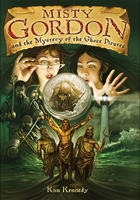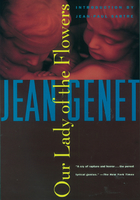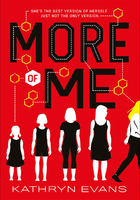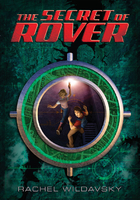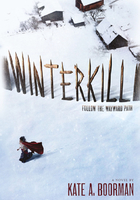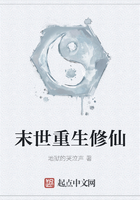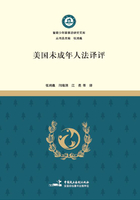Alif sat back on his heels.
"It must be a joke," he said.
"It looks serious to me." Dina held up the manuscript, turning it one way and then the other. "See how old it is? And it smells like-like-"
"I know," said Alif hastily, flushing. "But what does it mean? Why did she send it?"
Dina rolled her eyes. "You're asking me? I've only met her twice. I could have told you that running around with a stuck-up silk slipper behind her father's back was a bad idea. No wonder you've gotten so strange-"
"All right, all right." Alif jerked the book out of Dina's hands. The sun beat down on his dark hair and made sweat stand up on his scalp. He wanted coffee and the cool of his bedroom, the pleasant familiar hum of his machines. "Never mind. Thank you for bringing this to me. I'm sorry I got you involved."
Dina's eyes looked hurt. She stood, gathering the folds of her robe with offended elegance.
"Here, wait." Alif felt guilty. "I'll walk home with you. If we leave together without shame people will assume we were in here to pick the last of the dates."
"Thank you." Dina walked to the edge of the orchard without looking at him. Alif tucked the book back into the box and followed her. They passed between the jagged palm trunks and were immediately deafened by the late-afternoon traffic that moved down the street in one overheated mass. A skinny man on a moped reached out for Dina's veil as he sped past. Alif cursed at him, running a few steps before Dina called him back.
"It's just a donkey whose mother raised him wrong," she said, adjusting the black fabric over the bridge of her nose. "The City is full of them."
"You should have let me catch up," Alif muttered. "I'd teach him what his mother couldn't."
Dina moved closer to him. They walked in silence, threading through a series of named and unnamed streets until their own block appeared beyond an intersection.
"I'll stop at the pharmacy," said Dina. "Baba's liver is acting up again. It'll only take a minute."
"Okay." Alif waited as she ducked into a white storefront that advertised its wares in Tamil. When they got home he would take a shower and change into the gray house-kurta his grandmother had sent him from India, the one made of cotton so soft it felt like a baby's blanket. Then he would put a cold compress on his eyes and try to make sense of the day's events.
The smell of frying papadums wafted down from a cook shop in the next street, mingling with gasoline and dust: a greasy comforting scent he had known since childhood. Their little corner of the City was reassuringly solid, unchanged by what had happened in the past thirty-six hours. Alif's tragedies seemed to spring from some perverse timeline to which Baqara District was not a party.
Alif's gaze drifted to the garden in front of their duplex, half-visible between the neighboring apartment blocks. A man was loitering near the front gate. Alif squinted. He was an Arab, clean-shaven, wearing a white thobe and sunglasses. He stood as though he was waiting to meet someone or expected an imminent delivery. Alif had waited at the gate in a similar fashion a hundred times, to receive the butcher's boy, the ironing man, the fruit seller. But that was not strange, because this was his house.
"What's the matter?" asked Dina, exiting the pharmacy with a brown paper bag.
"There's a man standing in front of our place," said Alif. "Looking like he owns it."
Dina peered down the street. "Must be waiting for someone," she said. "Maybe he's a friend of Baba's. Or could he be looking for your father?"
"I don't-" Alif's phone buzzed in his pocket, interrupting him. He pulled it out and touched an icon on the screen: it was a text message from Abdullah. He opened it.
Faris says: Abbas Al Shehab.
Points of light danced in front of Alif's eyes.
"Are you all right?" Dina looked at him in alarm. "You've gone pale!" She said his given name in an anxious voice. He barely recognized it, or her.
"Please-" Her voice came out of a hazy brightness. "Answer me. I'm getting scared."
He mouthed a prayer. Adrenaline shot through his veins like an angelic answer, clearing his mind in one ringing blow. He grabbed Dina's arm. "I need you to do something for me," he said. "Quickly, without any fuss."
Dina looked from his hand to his face. "Okay," she whispered.
"Knock on my door and tell the maid you need to get a novel you lent me. Tell her it's in my room. Go up and get my netbook. It's sitting on my desk next to the main computer. And get-" His throat closed. "Get the gray kurta that's hanging in my wardrobe, on the left."
Dina's chest rose and fell rapidly beneath her robe. "What's going on?" she asked in a low voice.
"That man is waiting for me."
"What have you done? What have you done?"
Alif fought to keep his breathing steady. "I'll tell you everything, I swear-I'll tell you whatever you want. Just do this first. It's not safe for me to go home now."
Dina left him without a word. Alif watched as she crossed the street, paper bag clutched tight against her body. He held his breath when the man at the gate stopped her. Dina shifted from foot to foot, gesturing toward the New Quarter at one point with a hand that fluttered and shook. As she turned toward the house, the man grabbed her wrist.
Alif bolted across the street without thinking. As he neared the gate, Dina met his eyes with a look that stopped him dead: a terrible look, a warning, her pupils collapsing into tiny dots. He noticed irrelevantly that her eyes were flecked with green, forming starburst patterns around her pupils, like copper suns. Alif would have reached for the Arab man's arm, or even hit him, but Dina's gaze forced him back with a pressure that was almost physical, and he found himself retreating step by step until he stood at the edge of the street.
Dina twisted deftly out of the man's grasp and continued toward the house. The Arab man turned away from her, pulling a crease from the sleeve of his thobe in a gesture of irritation. He looked up and, for a moment, Alif saw his own startled reflection in the man's sunglasses. Alif ducked behind the corner of the apartment block next door, panting. The box containing Intisar's book puckered as he held it to his damp chest. The Arab man did not follow him.
The alleyway between the two buildings was lined with bags of garbage awaiting collection day; pools of reeking yellow fluid had formed beneath them, crisscrossing the unpaved earth to meet one another in rivulets. Alif gagged, straightened, and gagged again, tasting bile. He was still heaving when Dina touched him on the shoulder.
"Don't speak," she whispered. "He's still there. Keep walking down the alley."
Alif stumbled to obey her. They made their way along a thin spit of clear ground that ran through the trash, Dina bundling up her robe to keep it from dragging in muck. When they emerged into the next street, she punched Alif on the arm.
"Ow! Damn it!" He glared at her, rubbing the sore spot.
"You stupid, careless, selfish son of a dog," she said, voice shaking. "You've put all of us in danger. Our families, our neighbors. Do you know who that was? That was a detective from State security. Oh, yes." She shoved a backpack into his arms. "Here, take your stuff."
Alif stared at her, slack-jawed. "I can't believe you just said a swear word," he said. "I didn't know you knew any swear words."
"Don't be an idiot and don't change the subject."
Alif flushed and hugged the backpack to his chest. "What's in here?" he asked.
"What you asked for, plus some clean socks and a toothbrush. And a bag of dates."
"Thank you," he said. "Really. You're-I'm sorry about your wrist." He glanced at her black sleeve, feeling ashamed. "This is the second time today I should have protected you and couldn't. I owe you better."
"You owe me an explanation."
"Fine, yes, you're right." Alif glanced around anxiously, bundling Intisar's book into his backpack and letting the box drop. "Not here. We'll go to my friend Abdullah's place."
Dina looked uneasy.
"It's public," Alif reassured her. "At least technically. It's a shop, but only for people who know people. I won't make you break any rules. We'll leave a door open or something."
"Okay."
Alif led her on a circuitous path through Baqara District, doubling back every few blocks. Each time he saw a man in a thobe his stomach churned. When they reached the door of Radio Sheikh the sun was setting, and what birds remained in the City made restless sounds as they jockeyed for position in the stunted trees. Alif knocked on the door more forcefully than he meant to.
"Yes?" It opened a crack and Alif saw Abdullah's eyes flashing back at him in the rosy light.
"We need to come in," said Alif. "Now, immediately."
"We?"
Alif pushed the door open over Abdullah's startled protest and ushered Dina inside. Abdullah shrank away from her, glaring at Alif over her head.
"This is Dina," said Alif. "Find your manners."
"As-salaamu alaykum, miss," muttered Abdullah, shifting his gaze to the concrete floor.
"W'alaykum salaam," said Dina. Abdullah's expression changed.
"Is this-is she the-" He stopped midsentence, blushing. It took Alif a moment to realize what he meant.
"No! This isn't her. This is the neighbor's daughter."
"Oh. Okay." Abdullah took a deep breath. "Tea, anyone? Dina?"
Alif threw his backpack on the welding bench without answering. "Listen, bhai," he said, "I'm in serious going-to-jail-to-be-raped-by-thugs trouble. It's real this time. I've screwed up in the most profound way imaginable and I am fucked, fucked."
Dina began backing toward the door.
"The Hand again? Has something happened?"
"State security is watching my house. Our house. Dina's family lives in the same duplex. He was very nasty with her when she tried to get inside."
Abdullah fumbled his way toward the bench and sat down. "Go on," he said, feigning composure.
"The girl-Intisar-when the Hand broke into my computer I was connected to her machine. I thought that since she's an aristocrat they wouldn't bother with her, so I wasn't worried, but then Faris-" He swallowed. "It's her fiancé, Abdullah. Abbas Al -Shehab-that's her fiancé's name. Imagine his surprise when he found his future wife's computer hooked up to a hacker's. All our e-mails, all our chats-it will be a scandal to end scandals."
"Wait a minute." Abdullah steepled his fingers. "I don't under-stand what you're trying to say. Slow down and tell me again, because it sounds like you're saying you've been screwing the Hand's bride-to-be."
Alif slumped to the floor and covered his face.
"Alif," said Abdullah in a soft voice, "were you running the pattern recognition program? The one you've been working on?"
"Yes. It was installed on her machine. Functioning perfectly, too."
"So you've delivered into the Hand of the enemy a tool they could use to hunt us down no matter which computer or login we use?"
"Yes." The single syllable crescendoed in a squeak. "Yes."
"And you've given the Hand a reason to cut off your dick as well as your head."
"Yes."
"Then I agree." Abdullah stood. "You are one fucked man, and you've fucked us all along with you."
"Please stop cursing," said Dina.
"What are you going to do?" asked Abdullah, beginning to pace the floor. "You can't stay here. I mean you can, for now, but you'll have to keep moving."
"Thanks. Even one night would be a huge-"
"Don't thank me. This isn't a favor for a friend. I'm so angry I could bash your half-Arab nose right in. But what happens to you now will affect everyone you know. I'd like to keep my own ass out of prison, if it comes to that."
"What about Dina?"
"What about Dina?" said the girl herself. "Dina is going home this very moment. I've heard enough."
Alif looked up at her anxiously. "I don't think that's a good idea. Not with the State watching the house. They could get angry and decide arresting you is the best way to drive me insane. You live next door to a terrorist. People have been executed for less."
"What am I supposed to do? Are you saying I can't go back to my own house?"
"Please keep your voices down," said Abdullah, twisting his hands.
"My mother," moaned Alif. "My poor mother."
"You should have thought of your poor mother before you started screwing someone else's prize filly."
"Stop it!"
Alif and Abdullah went silent and stared at Dina. She was breathing heavily, fists clenched at her sides.
"Stop saying such ugly things! You're a couple of boys trying to talk like men-you're not fooling anyone!" She took a few deeper, shaking breaths and relaxed her hands. "We have to think calmly and decide what must be done."
Alif studied Dina over the ridge of his updrawn knees, impressed. A damp flush had appeared on the skin beneath her eyes, but her gaze was steady. She sat down on the welder's bench and smoothed her robe before addressing them again.
"Brother Abdullah, I think we'll take that tea now."
* * *
For an hour they discussed and discarded Alif's options. Could he flee the country? No: by now his name had certainly been added to a blacklist at every port and border. Could he bribe some Bedouin to take him through the desert, where he could cross into Oman or Saudi Arabia unnoticed? Dina dismissed this as fanciful. Was there no relative or friend with political connections to whom he could appeal for protection? Alif thought of his father's other family: his first wife had a cousin or two in some modest level of government. But she would never help him.
After the evening call to prayer Abdullah left for a quarter of an hour, returning with hot shawarma sandwiches. By this time Alif's anxiety had changed shape: he considered what might happen-or worse, had already happened-to Intisar. Everything hinged on whether her fiancé decided to reveal the scandal to her father or not. The Hand did not yet have formal control over Intisar; her father, on the other hand, was within his rights to beat her to the verge of death. For a brief, fluttering minute Alif let himself imagine the Hand had released her from her engagement and hushed the whole thing up to avoid embarrassment.
"When you saw her," Alif asked Dina as they ate, "Intisar, I mean, did she look like she'd been hurt? Did you see any bruises or marks? Was she limping?"
"No," Dina said curtly. "She wasn't limping. She just seemed upset."
"Maybe it's all right then," said Alif, thinking again of the possibility that Intisar was both free and socially damaged enough to make him look like a suitable match. He could give up his work, take a job at a respectable company, make microchips for morons. They could be happy.
"All right," snorted Abdullah. "You're going to need a bodyguard for the rest of your life. If you even make it to the rest of your life."
"I don't care if I do," said Alif. "All that matters is that Intisar is safe. She shouldn't be punished for what I've done-she's never said a word against the emir or the government in her life. If they hurt her I'll kill myself." He ground the palms of his heels against his eyes.
"Don't be a baby," Dina muttered.
Abdullah crumpled the wax paper wrapping of his sandwich and dragged one hand across his mouth. "Look," he said, "here's my idea. You both stay here tonight. I'll curtain off a corner for Dina and my sister can lend her some night things. Then in the morning you both go to the old part of the souk and look for help. You need protection."
"Look for help? From who?"
"Vikram the Vampire."
Alif burst into an exasperated laugh. "You've got to be kidding me. Vikram the Vampire? Are we ten years old?"
"I used to play that game with my cousins," said Dina. "We'd turn off all the lights and say his name three times and then spit. He never showed up. Of course when I got older I repented."
"He's not really a vampire," Abdullah said crossly. "That's just what they call him. After the legend, you know. He's a black market thug. He worked over my friend Nargis, who imports those Chinese hacktops, when he was short on cash one month. Nargis came in here with a broken jaw and two missing teeth, scared to death. Said the guy has yellow eyes."
"So why would we go to him?" Alif asked. "I don't want a broken jaw."
"You pay him, idiot. You pay him to protect you."
"One guy is no match for the Hand, even if he does have yellow eyes."
"Would you just listen? Of course he'll have ideas we haven't thought of. Smugglers, dock workers-who knows what kind of connections those thugs have. They're almost as crooked as the government. And Vikram is the worst of the lot."
"Can't we talk to someone normal?"
"No," said Abdullah, "you're divorced from normal. The further off the grid you go the better."
Alif let out a sharp breath. "Fine, okay. Let's say I find Vikram the Vampire. There's still the matter of the book."
"What book?"
Catching Alif's eye, Dina gave an almost imperceptible shake of her head.
"Nothing," Alif stuttered. "Just thinking out loud. Some research I have to do."
"Well, do it on your own time. Right now you have to think about keeping yourself-and the rest of us-out of jail."
Alif let his head go limp and loll between his shoulders. "Vikram the Vampire. I committed a sin by waking up this morning. That is the only way this day could have gone so terribly wrong."
"What a bizarre thing to say," Dina scoffed.
They cleaned up the crumbs and tea things in the gathering dark. When Abdullah and Dina left for his sister's apartment, Alif took the opportunity to boot up his netbook. He braced himself to find some insidious worm waiting in his e-mail, some miraculous program that would allow the Hand to descend on him out of the ether if he so much as coughed. But there was nothing. Cautiously he enabled remote access to Hollywood; the hypervisor was still online. Alif let out a breath he hadn't realized he'd been holding. Hurriedly he set up a roving IP address-a costly, inefficient way to disguise his location, and far from foolproof, but it would buy him a little time. The Hand would see Alif using his e-mail and cloud computing accounts, but until he could crack his algorithm, Alif would appear to be working from Portugal, Hawaii, Tibet.
Next, Alif set about dismantling his creation. He downloaded what little he could onto the netbook's modest hard drive and dumped a little more-cryptic commands, programs unusable without other programs-into the cloud he shared with a few other City gray hats. Enough to seed a new version of Hollywood when real life reasserted itself. The Tin Sari program files he transferred intact and whole onto the sixteen-gig flash drive he always carried in his pocket. The drive had been blessed, at one point, by a toothless Sufi dervish from Somalia who grabbed Alif's wrist as he sat in a street café. Alif had yet to discover whether the blessing stuck.
When he was finished he blanked the hard drive of his home computer, leaving behind a program that would cause the CPU to overclock-and, he hoped, melt-the next time it was booted up. He would leave the Hand's agents with a lump of silicon too hot to pick up. They would get nothing from him.
"God, he's crying!"
Dina and Abdullah had returned and stood in the doorway staring at him. Alif realized his face was wet.
"It's gone," he said. "I destroyed it. My whole system."
Abdullah knelt beside him with a look of profound compassion.
"It'll be all right, bhai. You'll rebuild."
"Not in time to help my clients. I have to write a bunch of awful e-mails."
"The threat was always there, Alif-they'll understand."
Alif stroked the white plastic casing of his netbook absently. "In the four years I've been doing this stuff for money, I've had less than forty-eight hours of downtime. Did you know that? And now I'm a ghost in the machine. By next week all the hacks and geeks and hats I call my friends will have forgotten who I am. That is the nature of this business. That is the Internet."
"You still have real friends," said Dina. The two men made identical derisive noises.
"Internet friends are real friends," said Abdullah. "Now that you pious brothers and sisters have taken over half the planet, the Internet is the only place left to have a worthwhile conversation."
"Even if they forget all about you in two weeks?"
"Even so."
Abdullah had brought two thin cotton mattresses and a largish bed sheet. He and Alif strung the latter across one corner of the room, fastening it to the wall with thumbtacks. Alif cleared away computer boxes and put the better of the two mattresses-one had a suspicious stain-in the tentlike space their makeshift curtain had created.
"Here," he said to Dina, "we'll leave while you get ready for bed."
"This isn't right," Dina fretted. "I told my mother I'm staying at Maryam Abdel Bassit's place. If she finds out I'm lying she'll be crushed."
"Live adventurously. See you in the morning." Abdullah left the room with a flourish, one arm slung along Alif's shoulders.
* * *
The room was dark when Alif returned. He took off his shoes and lay down on the second mattress, feeling as though he had been through a physical ordeal. His back and legs ached. Intisar reentered his thoughts every time he tried to forget her for a few minutes, bringing with her an unsettling combination of arousal and guilt, foreshadowing a disaster even greater than the one that had already befallen him. Her life was at risk: that much was clear. He felt impotent in the face of the pain he had brought on her, the danger she must now face. He could not save her with a few bracketed commands and C++ programs, but this was the only way he knew.
"I don't like calling you Alif."
He looked over at the veiled corner of the room.
"Why?"
"It's not your name."
Alif looked back at the ceiling. "It might as well be my name," he said.
"But it isn't. It's a letter of the alphabet."
"It's the first letter of Sura Al Baqara in the Quran. You of all people should approve."
He heard Dina shift on her mattress. With the angle of the light from the window, he realized that she could probably see him through the curtain, though he could not see her.
"I don't approve," she said. "Your real name is better."
"Alif, lam, mim." He drew the letters in the air with his finger. "One-digit symbol substitutions: God, Gabriel, the Prophet. I named myself after the first line of code ever written. It's a good name for a programmer."
"Why does a programmer need a second name?"
"Tradition. And it's called a handle, anyway, not a name. It's safer to be anonymous. If you use your real name you're liable to get into trouble."
"You use a fake name and you still got into trouble."
Alif bit back an insult, keeping his teeth shut until he could trust them. "Whatever. Good night, Dina."
He had begun to lose the distinction between his thoughts and his dreams when she spoke again.
"I'm not what you think I am. I'm not trying to be stuck-up and annoying. I'm not what you think."
"I know," he muttered, unsure of what he meant.
* * *
When he woke up the next morning he had forgotten where he was. Bolting upright, he stared wildly at his surroundings, blinking until his eyes adjusted to the unsaturated light that filtered in through the window. Dina moved along his peripheral vision like a dark bird, humming an Egyptian pop song. The sheet that had protected her while she slept was folded neatly on her mattress. Alif caught the sharp, astringent scent of tea: a tin pot was steaming atop a camp stove on the window ledge, next to a plate of fried eggs and roti.
"Abdullah left some breakfast," said Dina. "We didn't want to wake you. It's nearly ten."
"Where'd he go?" asked Alif, rubbing his eyes.
"He said he had to make some phone calls. We're supposed to lock up when we leave."
They ate without speaking. Alif stared pensively out the window, trying to map his next steps. The day, and the days that would certainly follow it, were unfathomable: too much had been asked of him. He looked at his backpack, wishing he had had more time to consider what he might need.
"Why didn't you want Abdullah to know about the book?" he asked Dina, reminded of the inconvenient article by a rectangular bulge in his bag.
Dina shrugged. "Why does he need to know?" she asked. "The less he knows, the less he has to lie about when they come for him. Your friend obviously wanted to keep the book a secret. There must be a reason for that."
"When they come for him," Alif repeated. "God, I feel sick."
Dina began to tidy the room, clearing away their breakfast things and straightening the boxes they had moved to make room for their bedding. Alif watched her with pursed lips.
"You sing," he said abruptly. "You listen to music."
"So?"
"I thought women who believe the veil is mandatory also believe that music is forbidden."
"Some do. I don't."
"Why? You all read the same books. Ibn Taymiyya, right? Ibn Abdul Wahhab?"
"Birds make music, river reeds in wind make music. Babies make music. God would not forbid something that is the sharia of innocent creatures."
Alif chuckled. "Okay."
Dina whisked his empty tea glass out of his hands and clucked her tongue. "You're always laughing at me," she said.
"That's not true! I laugh when you surprise me."
"How is that better?"
"All right, I laugh when you impress me."
Dina said nothing, but he could tell by the way she refilled his glass that she was pleased. He drank the tea down quickly and helped her finish tidying the room. When they were done Alif shouldered his backpack and opened the door cautiously: no one outside, no one on the rooftop across the way, no one loitering at the corner in an obvious manner. An elderly man in a donkey cart piled with jackfruit rolled past the alley along the street beyond. Otherwise, they were alone.
"Let's go." Alif ushered Dina out in front of him and locked the door from the inside before closing it. They set off down the alley at a nervous pace, wandering too far apart and then too close together. There was an acrid smell in the air-the scent of factory fumes and the overheated sea; cement dust from construction in the New Quarter. Alif headed in the direction of the harbor, following streets that sloped downward to meet the water.
"You're heading toward the souk," Dina observed at one point.
"Yes-I thought that was the plan."
"Plan? We're not seriously going to look for Vikram the Vampire, are we? Even your Bedouin idea was better than that."
Alif kicked a dried clot of dung that lay in his path. "I don't know what else to do, Dina. I really don't know what else to do."
"This isn't a movie, for God's sake. You can't just walk up to a back-alley thug and ask him for a favor. And Abdullah's never even met this man-he could have been making that whole story up!"
"What do you want?" Alif turned on Dina with a snarl. "We are down to a small selection of shitty options. Don't harass me." He spun around and continued walking. A minute later he heard sniffling: Dina was trailing behind with one hand over her veiled mouth, head down.
"Oh, God." Alif ducked into a side street, leading Dina by the hand. "Please don't cry. I didn't mean for you to cry."
"Don't touch me." Dina shook her hand free. "You think this isn't awful for me, too? I could have just-" She stuttered to a halt, breath catching in little gulps.
"What?" Alif asked.
"The detective," she answered. "He said nothing would happen to me or my family if we turned you in. You were standing right there. If I had-I didn't-"
Impulsively, Alif took her hand again and turned it upward, pressing a kiss into her palm. They stared at each other. Dina pulled away, rubbing the tears from her eyes.
"It's all right," she said. "Okay. Let's go find Vikram."
* * *
Souk al Medina was close to the wharf, giving vendors easy access to the fishing boats that came in at dawn and sunset. It was as ancient as the Old Quarter, active since the days when the City was only a punctuation mark on the Silk Road, a resting place for merchants and pilgrims on their way to Mecca. Alif had known it since childhood. He remembered clutching the end of his mother's shawl as she bought live chickens and fish heads for stock, or raw spices measured by the gram.
With Dina he wandered down alleys that had never been paved. The footing was half mud and reeked of yeasty animal functions. Every so often the alleys were interrupted by limestone arches, the remnants of a covered market hall long since quarried for newer buildings. The place was impervious to its own history. Women and maids were out resupplying their households in the morning light, a throng of black veils and multicolored salwar kameez so indistinguishable from one another that Alif kept glancing over his shoulder to reidentify Dina.
"I think we should look around the wharf side," he said at one point, trying to sound confident. "I know a couple of smartphone importers down there who might be able to help us."
"Importers?"
"Smugglers."
"Oh."
Alif pushed his way toward the wharf, past fishmongers extolling the freshness of their wares in rhyme. Over the sea of covered heads he saw a tiny storefront with a sign advertising mobile phone sales and repairs, and moved toward it. With relief, he spotted a familiar figure-Raj, the enterprising Bengali who had unlocked Alif's own smartphone-leaning in the doorway.
"Raj bhai!" Alif tilted his chin up in what he hoped was a jaunty manner. "It's been a long time."
Raj looked up at him with disinterest, then glanced suspiciously at Dina. "Hello," he said in English. He toyed with a SIM card in one hand.
"Listen," said Alif, clearing his throat, "I have a strange question. This might sound strange, I mean. I'm wondering if you know-"
"A man named Nargis," said Dina, cutting him off. Raj's eyes flickered over her cloaked form. Alif shifted uneasily from foot to foot, and elected to say nothing.
"You looking for a hacktop?" Raj asked.
"No," said Dina. "We just want to talk to him."
"No one comes here to talk," said Raj.
Dina sighed with an air of impatience. "We don't have a lot of time," she said. "Do you know this guy or not?"
Raj looked faintly impressed. "I know him. He's usually around in the afternoons. Let me give him a call." He eased himself upright and went into the shop.
"What are you doing?" Alif hissed at Dina. "What's all this about Nargis?"
"Assuming Abdullah was telling the truth, we should talk to the source of the story," she said. "If we go bumbling around the souk asking for Vikram the Vampire we'll look like a pair of idiots."
Alif felt a swell of admiration. She really was as smart as a man. He straightened up as Raj leaned out of the shop door and motioned them inside.
"Nargis is on his way. Come inside. Chai?" He said the last word in a Bengali drawl that verged on sarcasm.
"Hot, please," said Dina, sitting down on a folding chair along the shop wall, "With plenty of sugar."
Raj flushed and skulked away into an inner room. He emerged a few minutes later with two glasses of milk chai, offering them wordlessly to Alif and Dina before retreating behind a desk. Alif sipped his tea in silence, watching Dina as she maneuvered the glass beneath her veil with the dexterity of long practice. A few minutes later, a short, nervous man of indeterminate age appeared in the doorway. Raj rose.
"Nargis," he said, adding something in Bengali that Alif did not understand. Nargis shuffled into the room, glance shifting from person to person as though waiting for a reprimand or a blow. Alif noticed that his jaw was slightly crooked, and sat strangely on his face.
"Hi," said Alif.
"What do you want?" asked Nargis. "I've never heard of you before."
"I'm-we're friends of Abdullah's. We're looking for a certain person and he thought you might be able to help."
Raj said something else in Bengali.
"Would you mind giving us a few minutes?" Dina asked him sweetly. "Thank you so much for the tea. It was delicious."
Unmanned, Raj bolted back into the inner recesses of the shop.
"Abdullah told us you had a nasty run-in with Vikram the Vampire," Alif said to Nargis. "Is it true?"
Nargis touched his jaw. "Vikram the Vampire isn't real," he said.
"We're not interested in getting you into more trouble," said Dina. "We just need to find him."
Nargis broke into a sudden, high-pitched laugh, like a scrofulous hyena Alif had once seen in the royal zoo.
"You must both be insane. He would break you in half if you went looking for him. Do you know what he is? Do you know what he is?"
Alif was confused. "A thug?"
"You're insane," Nargis repeated.
"Just give us a location," said Dina. "That's all. We'll never bother you again."
"You don't understand what he'll do to me if I help you."
"He'll thank you. We want to pay him a lot of money to lend us a hand."
Nargis seemed to relax a little. He licked his lips. "That's something else," he said. "If you want to hire him, that's something else. But it will cost you."
"That's fine," said Alif impatiently. "We need to find him first. Right? Yes? So where is he?"
Nargis regarded him for a long moment. "There's a cracked arch on the western edge of the souk. He lives in the alley that runs through it."
Alif suppressed a triumphant smile. He glanced out the corner of his eye at Dina. Her gaze was fixed and calm, betraying nothing. She stood.
"Thank you," she said. "We're grateful for your help." Nodding at Alif, she walked briskly toward the shop entrance. Alif scrambled to follow her, cursing his awkward feet.
"That was great!" he crowed as soon as they were back in the bustle of the souk. "The way you handled them, Dina-it was like you weren't even nervous. For a minute I forgot you were a girl."
Dina made an indignant noise. The sun pressed down as though endowed with physical strength; the day was growing hotter. They moved into the shade of the corrugated shop roofs that extended row after row toward the wharf. At the end of one alley they found a shabby concrete building that had been converted into a prayer room, announcing its repurposed function by the pile of shoes heaped outside. Dina slipped off her sandals and excused herself to perform the midday salat. Alif waited idly by the door for her return. The idea of taking off his shoes and socks only to put them back on again was too much in this heat. He leaned against the cool concrete wall and listened to the imam-toneless, weary-sounding-lead the prostrations of his merchant congregation. Dina emerged in the aftermath, a black figure amid the press of men jockeying to retrieve their sandals and loafers from the heap near the entrance.
"Haraman," he told her.
"Gema'an inshallah," she said. He felt foolish when she did not rebuke him for his failure to pray. They walked silently back through the souk, listing toward the harbor, where the smell of grilled fish and onions announced lunchtime from innumerable food stalls. When Dina suggested they eat before continuing their search, Alif made no protest. An uneasy sensation was building in his middle: a suspicion that he lacked both the will and the competence to see this plan through. He had prided himself on his knowledge of the City's gray market but the thought of a thug, a visceral criminal, made him feel inexperienced and effeminate. He had never held a gun, nor seen one except on television and once or twice in the hands of a border guard.
Alif made a conscious effort to relax his brow and his mouth. When he was nervous he tended to purse his lips; it was a shortcoming Dina herself had identified. He felt her gaze on him now, studying his mood. He would not let her see his uncertainty. He couldn't bear the thought of her familiar sharp sigh, the upcast eyes, the unspoken conclusion that he had once again behaved like a child and it was left to her to make things right. Alif lifted his chin and tried to appear confident.
"Fish kebabs?" he asked her. "Or fish curry?"
"Kebabs, please. They let the curry sit in the sun all day."
Alif approached the closest food stall, manned by a boy barely tall enough to fan his charcoal grill, and paid for two nicely charred skewers of red snapper and two cans of Mecca Cola. He gave one of each to Dina, then they threaded their way toward the dock that ran the length of the harbor. Boys and young men patrolled it restlessly, chucking stones at passing seagulls. Alif found space near an antiquated fishing boat and sat down, letting his legs hang over the edge toward the greenish, lapping sea.
"Girls don't sit at the dock." Dina stood over him, shifting from one foot to the other.
"There's no law saying you can't. If one of these donkeys gives you trouble I'll smash him."
"How?"
Alif looked up at her witheringly. Dina murmured something to herself and sat down at a polite distance, lifting the edge of her veil to tuck the kebab underneath. They ate without speaking, licking oil off their fingers, pausing to listen to the bells of the boats that came and went in the harbor. An acne-riddled boy sucked his teeth and moaned at Dina as he capered past; Alif threw a crumpled Mecca Cola can at his head. It caught the boy squarely under his buzz cut. He yelped but did not turn, careening onward down the dock.
"Bastard desi dock boys," shouted Alif. "You like making Indians look bad in front of these Arab shits? Do you?"
The boy disappeared into the midday glare.
"Are we all shits?" Dina wiped her hands on a napkin and stood.
Alif waved one hand impatiently. "You know what I meant. Gulf Arabs and all that. Egyptians aren't really Arabs, not in the same way. You're imported labor, just like us."
"You're partly an Arab, too."
"Partly is the same as not at all. Can you see them hiring me at CityCom or the Royal Bank?"
"Yes, as a chaiwallah."
Alif swatted at her ankles; she danced out of the way with a squeak. Hauling himself to his feet, Alif surveyed the harbor: a few fishing boats were bringing their catches home early, struggling in the heavy wake of an oil tanker that was putting out from the TransAtlas slip. He sucked the last of the fish from his skewer and tossed it into the water, where it gravitated toward a buoyant clot of trash. He didn't want to go back to the souk. Dina swayed on her feet, looking philosophical, waiting for him to issue directions.
"All right," he said. "I guess this is really happening."
* * *
It was midafternoon before they found an arch like the one Nargis had described. It straddled a row of cloth vendors displaying moth-bitten bolts of cotton and linen, their hands stained with the dye they used to color their goods. The alley was oddly silent: few shoppers wandered past its stalls, giving the whole street a neglected, overlooked air. Alif felt the bile quicken in his stomach as he examined each stall, trying to decide which long-faced merchant might be sheltering a criminal, and how best to approach him.
"Look." Dina pointed to the left foot of the arch. A patchwork tent was set up against it, made from the same material the cloth vendors were selling. An AK-47 lay casually on top of a jerry can near the entrance. Alif hesitated.
"I don't want to do this," he said, ceasing to care whether he looked like an idiot or not. "Let's just forget it. This is crazy, and I can't-I don't know what to-"
"I never wanted to do this in the first place," said Dina, "but you said it was our only choice. We can't just stand here."
They stared at the tent for several more minutes. Alif wondered what the unspeaking merchants in the cloth stalls were thinking as they looked at him. The silence in the alley was unnerving.
"Go," muttered Dina.
Alif edged toward the tent as if approaching an undetonated bomb. He thought he saw movement within. He squinted: the shadow of a four-legged animal, a large dog perhaps, moved against the cloth barrier. He was about to draw Dina's attention to it when he heard her scream.
Alif spun around and was halted by blinding pain. He stumbled forward, dragged by an unseen hand, and saw the dirt alleyway rush toward his face. He flinched. When he opened his eyes again, he was tumbling over Dina into the tent.

